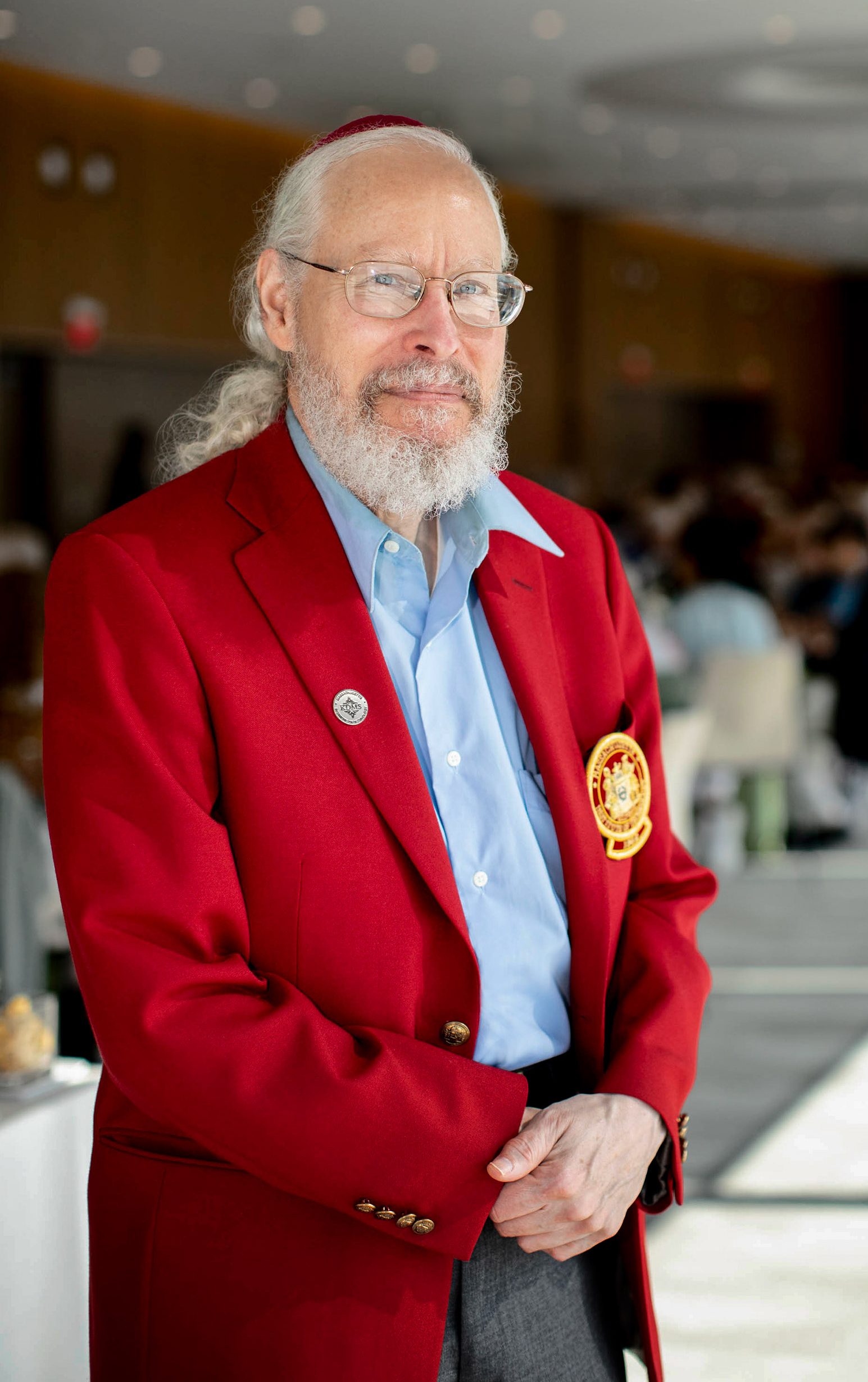
“I got to play with computers at MIT at a time when that was a real privilege,” recalls Mike Speciner, a self-described generalist who double-majored in math and physics. His wide-ranging career includes stints developing software, hardware, imaging algorithms, teleconferencing techniques, and much more. He holds multiple patents, has coauthored a book on network security, and cofounded The Singing Torah. Speciner is also something of a generalist in his giving to MIT, supporting numerous initiatives that help provide opportunities for MIT students and researchers.
Inflation-protected giving. Speciner has made multiple gifts through the MIT Office of Gift Planning, including a charitable remainder unitrust (CRUT), which provides income to donors and their designated beneficiaries. When a CRUT terminates, the gift goes to a designated cause at MIT, the Department of Mathematics in Speciner’s case. “I think of the CRUT primarily as a gift,” Speciner says, “but also as a tax deduction that avoids capital gains taxes, and an investment that provides inflation-protected income. MIT investment management is superb.”
A positive difference. Speciner’s first major gift supported music at MIT, and he continues to support the arts as a member of the Council for the Arts at MIT. Over the years he has given gifts in multiple areas he views as important to making a better world. “Math is fundamental to pretty much everything,” he says. “Physics to understanding how the universe works. Earth, atmospheric, and planetary sciences to understanding and ultimately saving the Earth. Brain and cognitive sciences for understanding understanding. MIT continues to make a positive difference in the world, and I can be a small part of that.”
Help MIT build a better world.
For information, contact Amy Goldman
617.253.4082; goldmana@mit.edu
giving.mit.edu/planned-giving
Keep Reading
Most Popular
Large language models can do jaw-dropping things. But nobody knows exactly why.
And that's a problem. Figuring it out is one of the biggest scientific puzzles of our time and a crucial step towards controlling more powerful future models.
The problem with plug-in hybrids? Their drivers.
Plug-in hybrids are often sold as a transition to EVs, but new data from Europe shows we’re still underestimating the emissions they produce.
Google DeepMind’s new generative model makes Super Mario–like games from scratch
Genie learns how to control games by watching hours and hours of video. It could help train next-gen robots too.
How scientists traced a mysterious covid case back to six toilets
When wastewater surveillance turns into a hunt for a single infected individual, the ethics get tricky.
Stay connected
Get the latest updates from
MIT Technology Review
Discover special offers, top stories, upcoming events, and more.